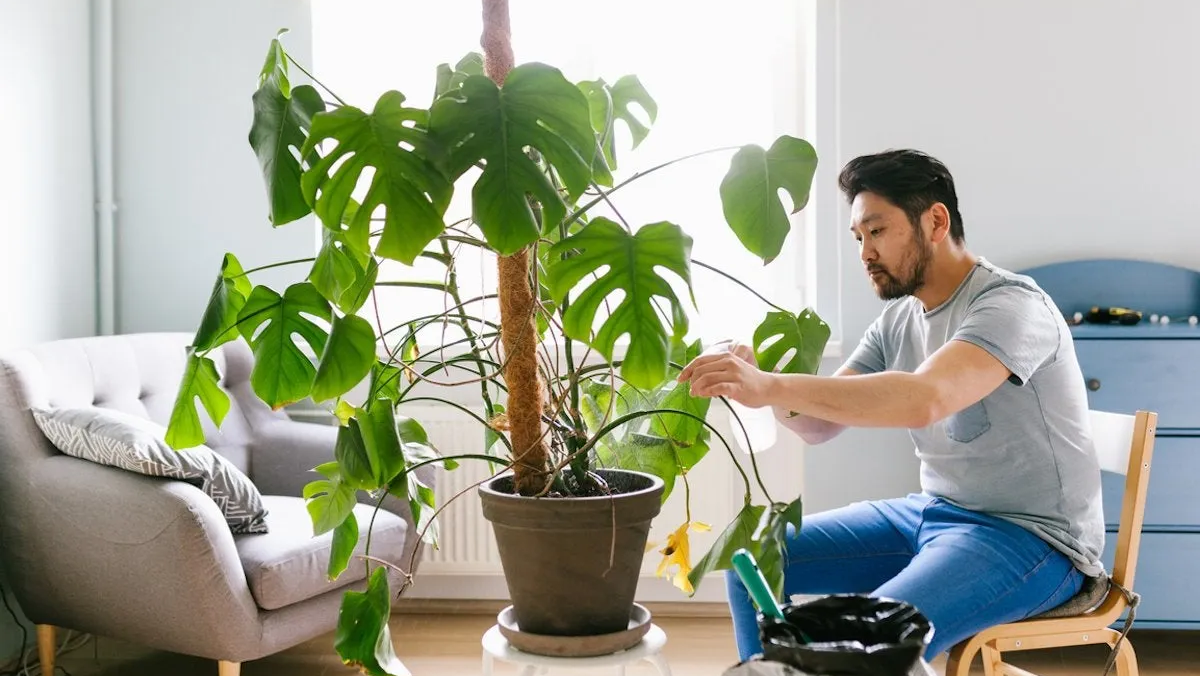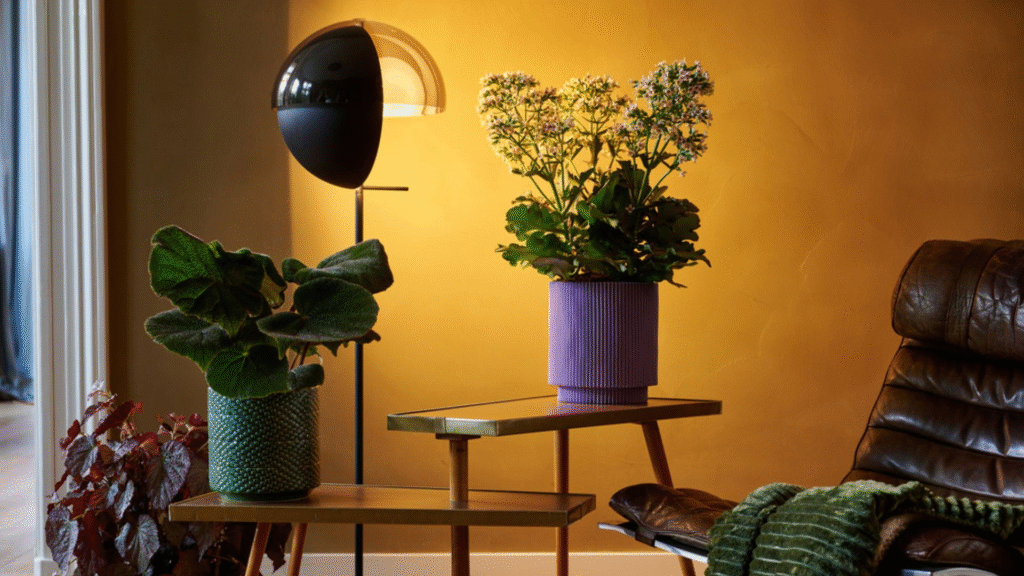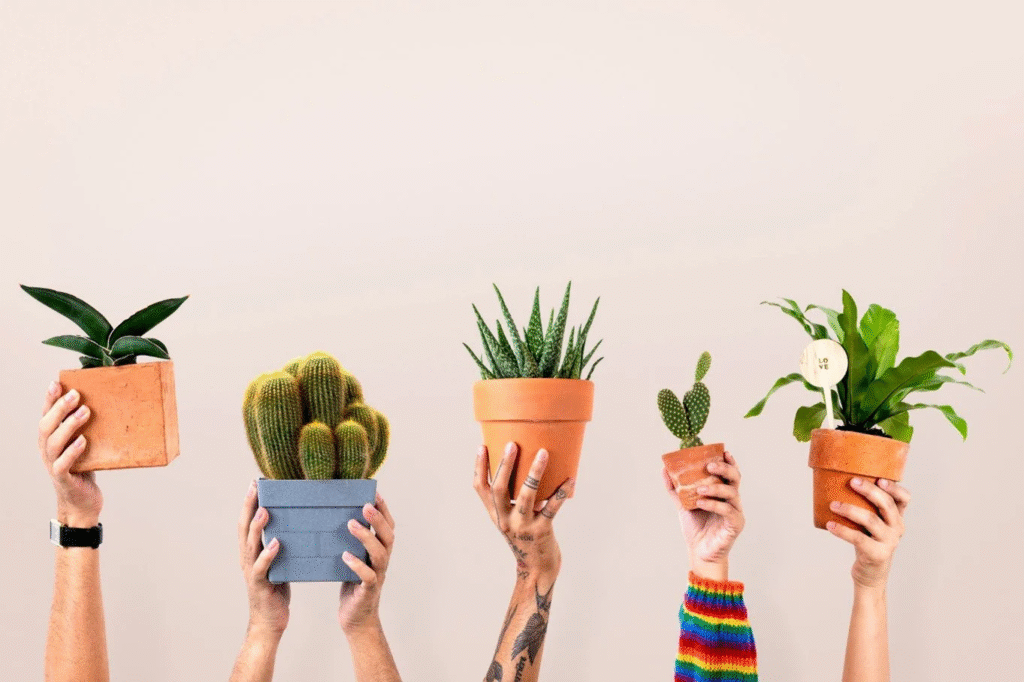
As the world moves toward smarter, more sustainable living, plant care in 2025 has grown into a vibrant lifestyle trend. What used to be a weekend hobby has now evolved into a tech-powered, wellness-focused routine for people of all ages. From AI-driven gardening systems to eco-friendly pots and precision watering apps, plant care today is not just about keeping your greenery alive it’s about thriving with them.
Whether you are a beginner with a balcony or an expert running a lush indoor jungle, plant care in 2025 offers something new for everyone. This article explores the latest plant care tips, tools, and trends to help your plants grow stronger, healthier, and more beautiful than ever before.

Gone are the days of guessing when to water your peace lily or fiddle leaf fig. In 2025, smart plant sensors and mobile apps make it easy to monitor your plant’s health in real-time. These tools measure soil moisture, temperature, light exposure, and even nutrient levels.
Popular devices like the GrowBuddy Sensor or LeafIQ connect directly to your smartphone. You get instant alerts when your plant needs water, sunlight, or a change in environment. These gadgets also provide plant-specific advice, so no more overwatering or placing your cactus in the wrong corner.
For larger gardens or greenhouses, automated watering systems are more precise and energy-efficient than ever. New systems like AquaBloom 3.0 use AI to understand seasonal patterns and adjust watering routines accordingly. This not only saves water but ensures plants get exactly what they need when they need it.
In 2025, sustainability plays a key role in plant care. Eco-conscious gardeners are swapping plastic pots for biodegradable or recycled alternatives. Bamboo planters, coconut fiber pots, and compostable seedling trays are now widely available and affordable.
Organic, chemical-free fertilizers and pest repellents are in high demand. Natural solutions like neem oil sprays, compost teas, and banana peel mixes help nourish the soil and protect plants without harming the environment.
Many plant parents are also embracing closed-loop gardening, where household waste (like kitchen scraps) is reused to grow herbs and vegetables. Indoor composting units and vertical gardens have become common in apartments and urban homes, making it easier than ever to grow sustainably.
Plant styling is just as important as plant health in 2025. People now see houseplants as part of their interior design. This year’s trends include:
These choices reflect a growing trend of blending wellness and decoration. Studies show indoor plants reduce stress, improve air quality, and enhance mood making them more than just decor.
Social media continues to shape how people learn and share plant care tips. In 2025, plant influencers and online communities have grown stronger. Platforms like Instagram, TikTok, and Pinterest are filled with plant tours, tutorials, and DIY hacks.
Apps like PlantPal and GreenThumb Connect help users join local plant swaps, attend digital workshops, or identify unknown species with just a photo. These communities make it easy for beginners to find support and for seasoned growers to share their knowledge.
Even nurseries and plant shops are going digital. Many now offer virtual plant consultations, same-day delivery, and AR previews where customers can see how a plant would look in their home before buying.
Not everyone has time to care for high-maintenance plants, and that’s okay. In 2025, low-effort plants remain very popular, especially in urban homes and offices.
Top choices include:
These plants are not just easy to care for they’re also visually appealing and often help improve indoor air quality.
More people now treat plant care as a wellness ritual. The process of pruning leaves, watching new growth, or simply watering plants is seen as a calming, meditative activity.
Therapists even recommend plant care as a mindfulness practice. It encourages patience, observation, and a deeper connection to nature. Gardening, even on a small scale, has been shown to reduce anxiety and boost dopamine levels.
In 2025, wellness brands are also collaborating with plant companies to create mood-boosting kits—combinations of plants, aromatherapy oils, journals, and more for stress relief.

Looking forward, the plant care industry is only expected to grow. As climate change raises awareness about green living, more people are likely to start their own indoor gardens or support local growers. Smart home systems are integrating with gardening devices, making plant care even easier and more connected.
The future may also include genetically modified houseplants that glow in the dark, require less water, or purify air more efficiently. Already, scientists are working on bioengineered plants that act like living air filters.
Plant care in 2025 is a beautiful blend of tradition and technology. Whether you’re a casual plant owner or a passionate gardener, there are more resources than ever to help you grow confidently and sustainably.
With the right tools, community, and a little bit of green love, anyone can turn their home into a thriving mini-ecosystem. As we embrace smarter living, it’s clear that plants will continue to play a central role in our health, homes, and happiness.
Read More:- Deyaar’s Latest Announcement Shakes Up the UAE Property Market
